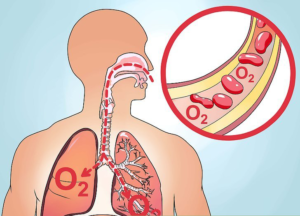SIGNS AND SYMPTOMS OF CARBON MONOXIDE (CO) POISONING

Signs and Symptoms of Carbon Monoxide (CO) Poisoning
Carbon monoxide (CO) poisoning is a serious medical emergency resulting from inhaling this colorless and odorless gas. CO binds to hemoglobin in the blood with an affinity 200 times greater than oxygen, preventing the proper transport of oxygen to body tissues. This can lead to severe organ and system damage. Below are the most common signs and symptoms of CO poisoning.
Common Signs and Symptoms
Headache: One of the earliest and most common symptoms of CO poisoning is a headache, often described as a tension-type headache. It can range from mild to severe.
Dizziness and Vertigo: Affected individuals may experience dizziness or a sensation of instability and vertigo, which can impair coordination and balance.
Nausea and Vomiting: These are frequent symptoms that might be mistaken for common gastrointestinal issues.
Weakness and Fatigue: The lack of oxygen in the tissues can lead to a generalized feeling of weakness and extreme fatigue, making it difficult to perform everyday activities.
Shortness of Breath: While carbon monoxide does not directly affect breathing, the lack of oxygen can cause a sensation of shortness of breath or dyspnea.
Neurological Signs and Symptoms
Confusion and Disorientation: As CO exposure continues, decreased oxygen levels in the brain can lead to confusion, disorientation, and difficulty concentrating.
Altered State of Consciousness: In more severe cases, CO poisoning can result in lethargy, drowsiness, and eventually, coma.
Seizures: Seizures can occur in severe cases, reflecting significant neurological damage due to hypoxia.
Cardiovascular Signs and Symptoms
Chest Pain: Similar to heart attack pain, chest pain can occur because the heart has to work harder to compensate for the lack of oxygen.
Arrhythmias: Prolonged CO exposure can cause irregular heartbeats, which can be dangerous.
Signs and Symptoms in Children and Pets
Irritability and Agitation: Children may become irritable and difficult to console. This can be one of the first signs of CO poisoning in minors.
Excessive Sleepiness: Both children and pets may show excessive sleepiness and difficulty waking up.
Vomiting and Lethargy in Pets: Pets may exhibit vomiting, lethargy, and weakness, which should be taken seriously as they are more susceptible to CO poisoning.
Importance of Early Detection
Early detection of CO poisoning is crucial to prevent severe and potentially fatal damage. Since initial symptoms can be nonspecific and easily mistaken for other conditions, it is essential to consider the possibility of CO poisoning if multiple people in the same environment show similar symptoms.
Prevention and Action
Prevention is the best strategy against CO poisoning. This includes installing CO detectors in the home, properly maintaining combustion appliances, and ensuring adequate ventilation in enclosed spaces. In the case of suspected poisoning, evacuate the area immediately and seek urgent medical attention.
Conclusion
Carbon monoxide poisoning is a silent yet severe threat. Knowing the key signs and symptoms can help in identifying and responding to this emergency effectively, saving lives and preventing long-term damage. Awareness and preparedness are essential to protect oneself and others from the dangers of CO.
Carbon monoxide (CO) poisoning is a serious medical emergency resulting from inhaling this colorless and odorless gas. CO binds to hemoglobin in the blood with an affinity 200 times greater than oxygen, preventing the proper transport of oxygen to body tissues. This can lead to severe organ and system damage. Below are the most common signs and symptoms of CO poisoning.
Common Signs and Symptoms
Headache: One of the earliest and most common symptoms of CO poisoning is a headache, often described as a tension-type headache. It can range from mild to severe.
Dizziness and Vertigo: Affected individuals may experience dizziness or a sensation of instability and vertigo, which can impair coordination and balance.
Nausea and Vomiting: These are frequent symptoms that might be mistaken for common gastrointestinal issues.
Weakness and Fatigue: The lack of oxygen in the tissues can lead to a generalized feeling of weakness and extreme fatigue, making it difficult to perform everyday activities.
Shortness of Breath: While carbon monoxide does not directly affect breathing, the lack of oxygen can cause a sensation of shortness of breath or dyspnea.
Neurological Signs and Symptoms
Confusion and Disorientation: As CO exposure continues, decreased oxygen levels in the brain can lead to confusion, disorientation, and difficulty concentrating.
Altered State of Consciousness: In more severe cases, CO poisoning can result in lethargy, drowsiness, and eventually, coma.
Seizures: Seizures can occur in severe cases, reflecting significant neurological damage due to hypoxia.
Cardiovascular Signs and Symptoms
Chest Pain: Similar to heart attack pain, chest pain can occur because the heart has to work harder to compensate for the lack of oxygen.
Arrhythmias: Prolonged CO exposure can cause irregular heartbeats, which can be dangerous.
Signs and Symptoms in Children and Pets
Irritability and Agitation: Children may become irritable and difficult to console. This can be one of the first signs of CO poisoning in minors.
Excessive Sleepiness: Both children and pets may show excessive sleepiness and difficulty waking up.
Vomiting and Lethargy in Pets: Pets may exhibit vomiting, lethargy, and weakness, which should be taken seriously as they are more susceptible to CO poisoning.
Importance of Early Detection
Early detection of CO poisoning is crucial to prevent severe and potentially fatal damage. Since initial symptoms can be nonspecific and easily mistaken for other conditions, it is essential to consider the possibility of CO poisoning if multiple people in the same environment show similar symptoms.
Prevention and Action
Prevention is the best strategy against CO poisoning. This includes installing CO detectors in the home, properly maintaining combustion appliances, and ensuring adequate ventilation in enclosed spaces. In the case of suspected poisoning, evacuate the area immediately and seek urgent medical attention.
Conclusion
Carbon monoxide poisoning is a silent yet severe threat. Knowing the key signs and symptoms can help in identifying and responding to this emergency effectively, saving lives and preventing long-term damage. Awareness and preparedness are essential to protect oneself and others from the dangers of CO.
